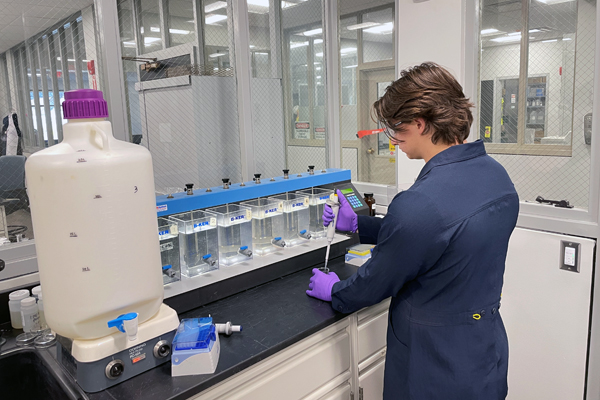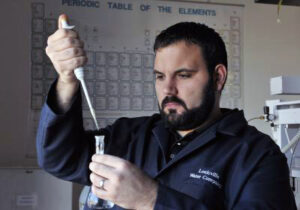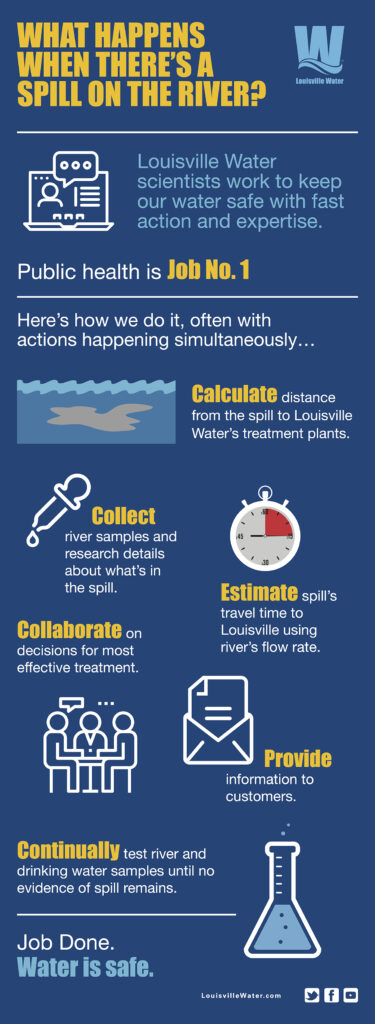 We’re frequently reminded how lucky we are to have a dedicated and trusted team at Louisville Water and that is certainly the case following the northeast Ohio spill.
We’re frequently reminded how lucky we are to have a dedicated and trusted team at Louisville Water and that is certainly the case following the northeast Ohio spill.
Every day, we work to protect the safety of your drinking water. Louisville Water operates an EPA-certified laboratory. Our scientists do an average of 200 tests daily on Louisville Pure Tap®.
While we have vigorous testing methods, we understand some of you have concerns following the train derailment in East Palestine, Ohio which led to a chemical spill in the Ohio River. You want to protect yourself and your family. Rest assured, Louisville Water does too.
Director of Water Quality & Research, Pete Goodmann worked with his team to develop a process to specifically detect the presence of butyl acrylate in the river. That’s the non-carcinogenic chemical that spilled, following the train derailment.
“It’s important to understand the chemicals that are introduced in the environment and set up our instrumentation to be able to detect and monitor them. So we are actively monitoring, but we have not identified any levels of this chemical,” said Chris Bobay, Manager of Water Quality & Compliance.
Louisville Water is part of a partnership that includes other drinking water utilities that rely on the Ohio River and the Ohio River Valley Water Sanitation Commission (ORSANCO) as well as state and federal regulatory partners. ORSANCO’s organic detection system stretches across 981 miles of the Ohio River where utilities and industry use sophisticated instruments to analyze for chemicals.
The network communicates daily about water sample test results.
Goodmann believes we won’t detect any levels of butyl acrylate in our area. “A slow-moving river provides time for the pollutants to dissipate, and we just had significant rain that will increase dilution as these contaminants move down stream. The river is our friend. It tends to fix its own issues.”
The Ohio River is an abundant source for our water supply. Bobay says we have to be ready to treat whatever comes our way.
“Our team is trained to handle water quality monitoring along with research into process optimization and treatment guidance to ensure we continue to produce the highest quality water we can.”
Delivering high quality water means the scientists aren’t only checking for things that shouldn’t be in the water, they test for things it should have like calcium and fluoride.
 While we don’t anticipate any effects of the Ohio chemical spill here, Louisville Water still plans to follow through with a monitoring and treatment plan.
While we don’t anticipate any effects of the Ohio chemical spill here, Louisville Water still plans to follow through with a monitoring and treatment plan.
Bobay said, “We will mobilize our spill response team and collect upriver samples to make sure there’s nothing actionable in the water. If we see something, we will be ready to treat for it.”
Note: Louisville Water works very closely with state agencies and other water utilities in Kentucky to implement new drinking water regulations and ensure everyone meets existing regulations.


